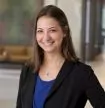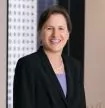For forty hours, five days a week, for three years, Jayquan Brown provided services to New York City Department of Education's Banana Kelly High School. Brown, who was a graduate of the school, was unable to secure a paid job after graduation and began an unpaid "volunteer internship" with the school. In that role, Brown assisted with student conflict resolution, lunch supervision, detention, parent contact, student escort, answered the telephone and handed out report cards and progress reports. He testified that he accepted the position with the goals of building his resume, modeling himself after one of his mentors—the school's director of student life, and helping "show the kids that we do care."
Based on these facts, the Second Circuit concluded that Brown was a public agency volunteer, exempted from the minimum wage and overtime requirements of the FLSA. See decision here. Under the FLSA and the corresponding regulations, a person is a volunteer if they perform work for a public agency and (i) have a civic, charitable, or humanitarian purpose; (ii) have not been promised or expect or receive compensation for the services rendered; (iii) perform work freely without pressure or coercions; and (iv) are not otherwise employed by the same public agency to perform the same type of services. In affirming the summary judgment dismissal of Brown's FLSA claims, the Second Circuit held:
- While a volunteer must be motivated by "civic, charitable or humanitarian reasons," that need not be his or her sole motivation. The fact that Brown wanted to improve his resume, for example, did not exempt him from the definition of volunteer when he also intended to help the student population.
- The question of whether an individual was "promised" compensation is to be evaluated using an objective reasonableness standard rather than a subjective standard. Brown's belief that he might get paid was not objectively reasonable when the school told him that they were looking for budget money or a grant to help support interns.
- Although acknowledging that a full-time "volunteer" position was unusual, the court determined that the role was still that of a volunteer because Brown's decision to report to the school every day was motivated by his own conscientiousness and there were no adverse consequences for the rare occasions when he did not show up.
In rendering its decision, the court was particularly mindful that Congress wanted to ensure that the FLSA would not "discourage or impede volunteer activities undertaken for civic, charitable or humanitarian purposes" when it drafted the public agency volunteer exemption.
The Second Circuit decision leaves the issue of volunteers unanswered for private sector volunteers and provides no comfort to any employer as to how these issues would play out under state wage and hour laws. Nevertheless, in a time where unpaid internship programs are being challenged on every front, the Second Circuit's decision gives public agencies some guidelines and comfort in how to properly utilize unpaid volunteers without running afoul of the FLSA.
The content of this article is intended to provide a general guide to the subject matter. Specialist advice should be sought about your specific circumstances.


